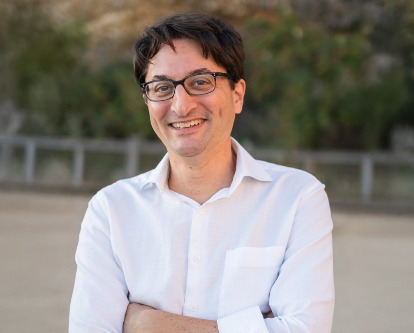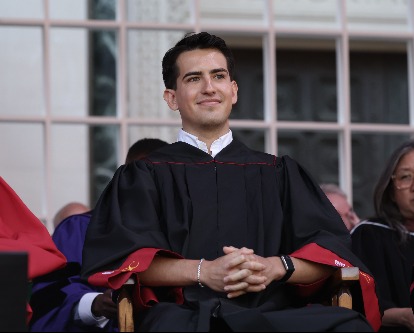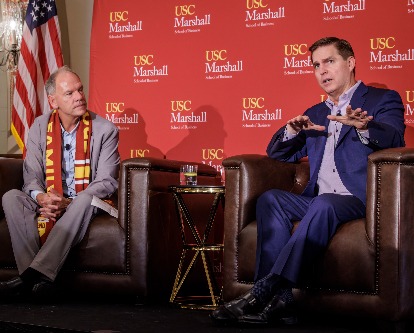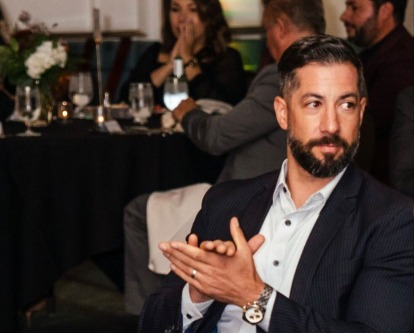Just about a year ago, Marshall’s Office of Diversity, Equity, and Inclusion gained new leadership, including two faculty researchers with established reputations in areas related to inclusion and diversity. At this time, the office had a mandate to grow not only its footprint, but its influence. To meet this call, the office set out to do some research of its own and recruited a group of talented marketing student interns to review the DEI websites of peer B-schools.
The students came back with a clear message: Marshall’s ODEI had to become more student-focused, with more student-led, student-informed and student-implemented programming.
“Student engagement became an anchor concept in our strategy and guided how we partnered with all offices that touch student life at Marshall,” said Violina Rindova, vice dean for diversity, equity, and inclusion, professor of management and organization, and research director for the Lloyd Greif Center for Entrepreneurial Studies. “Over the course of this year, we focused sharply on students and redesigned our website to expand the opportunities for learning and engagement. Our students are so eager, so hungry, for DEI content and engagement opportunities. They kept pushing us to provide a platform for learning and participation.”
“We heard that,” she said. “We researched it and implemented it, and it became the core of our ‘celebrating diversity’ approach. It brings a lot of vibrancy to the work. Our students even designed our logo around that theme, and we are very proud of them.”
With a team of dedicated staff, faculty and student interns, the Office of Diversity, Equity and Inclusion has made impressive gains in terms of content and outreach over the last year.
The office’s website is an ever-growing well of resources, for learning, for doing and for getting involved. Its Community Conversations series draws audiences from around the University to discuss important topics that offer new perspectives on complex topics and events.
These programs are supported by one of the office’s longest-standing communities — the DEI Fellows, which include staff and faculty who develop expertise in core DEI topics and contribute to the ODEI’s various initiatives. Senior Associate Director Tonisha Jester leads and coordinates the work with the DEI Fellows, and stressed that program’s role in the ODEI strategy for achieving inclusive excellence.
“Our office is going toward the Inclusive Excellence Framework, which synergizes and supports the collective DEI efforts across the board,” she said.
Jester and the rest of the ODEI team credit the DEI Fellows with the outsized showing from Marshall in the programming for USC’s annual Diversity, Equity and Inclusion Week.
Applications for the third cohort of Fellows open in April.
Underlying the office’s strategy for inclusive excellence is ongoing academic enquiry into the roots of diversity and inclusion issues. The office is informed by rigorous research being conducted by not only the two faculty members leading the team, but by others at Marshall and beyond.
Interim Assistant Vice Dean for DEI Sarah Townsend shared some observations from a recent plenary she gave at a conference hosted by the UC Berkeley Haas School of Business. “Next on our agenda is to showcase the thought leadership of Marshall faculty in the academic conversations on DEI,” she added.
A Mandate for Diversity and Inclusion
The Marshall School has hit several milestones in terms of gender parity over the past few years, with the entering undergraduate class of 2025 reaching 52 percent women. The Full-Time MBA class of 2020 became the first Top 20 business school to reach that milestone in 2018. Encouraged by these successes, the team is working on initiatives to foster diversity along other dimensions. Townsend said, “We know that gender parity is a real win, yet we need to do more both in terms of diversity and inclusion.”
The team agrees that diversity without inclusion does not work. They are hard at work on thinking about how to increase inclusion. Inclusivity, they note, is also an institutional mandate, as USC adopted inclusivity as a core value in its WSCUS reaccreditation this summer.
“USC has specific metrics for access and inclusion,” said Rindova. “It’s an overarching value and a framework that allows us to push along all dimensions and stakeholder groups at Marshall, including students, staff and faculty.”
Rindova is excited with the trajectory. “We’ve always said that our goal is that everyone sees themselves in the work, and that this is key to inclusion. Our next-level goal is that eventually everyone sees themselves as a stakeholder and a contributor to the work. We have expanded the scope and format of our communications to spread the word and invite more people to join."




